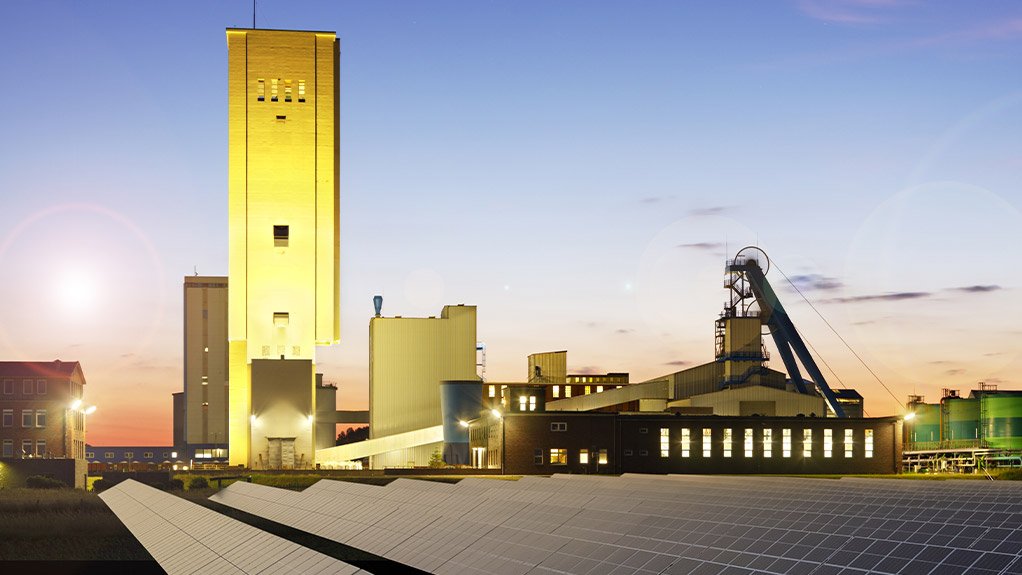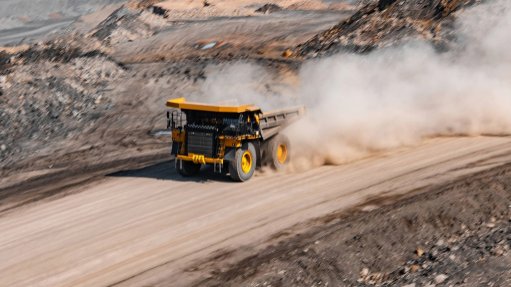Local procurement should be top of mind in mine-owned solar power projects
This article has been supplied.
By David Sullivan, Divisional CEO at LH Marthinusen, a division within the ACTOM Group
Many mines in South Africa are currently in the early stages of planning and obtaining approval for their independent solar power ventures, with the country’s ongoing energy crisis largely driving this transition to renewables.
Underground mines typically own large areas of land on the surface that cannot be developed but are ideal for housing solar plants and recent legislative changes have enabled businesses to develop up to one hundred-megawatt energy plants with very little red tape.
As a result, some mining houses have already initiated construction, while others are still in the process of specifying their plant or engaging engineering, procurement, and construction (EPC) companies to go out to tender on their behalf.
However, in this journey toward sustainable energy solutions, the significance of local procurement cannot be overstated. Yet, projects of this nature are often outsourced to and managed by an EPC company that must work within a specified budget, with the delivery of a functioning solar plant being their main directive.
Unless the directive from a mine specifies local procurement and aftersales backup, EPC companies might purely focus on delivering the solar plant at the lowest cost and look at short-term criteria rather than the long-term needs of the mine for the plant to remain at full capability.
Competitive pricing
While certain components might not be locally available, infrastructure such as transformers, switchgear and substation equipment can be sourced locally. There are multiple suppliers that can supply this at competitive prices and offer after-sales backup.
However, short-term cost savings are often prioritised and products from foreign suppliers are sourced at lower prices. While the equipment might be functional, mines should consider whether they are serviceable and if the equipment has the desired longevity to deliver the expected return on investment (ROI).
On the other hand, the advantages of proximity to local suppliers and service providers for mine-owned solar plants in terms of operational efficiency and reliability are numerous. For example, transformers often sustain damage during transit or fail prematurely due to transport-related movement of internal components. Additionally, foreign suppliers sometimes deliver “throwaway” products that are not designed to last or to be repaired.
This frequently occurs when products are insufficiently specified in the tender process, and there is a lack of effective quality control, often exacerbated by the supplier's distant location and language barriers. With many international suppliers lacking local aftersales support, equipment owners face limited options for recourse in the event of equipment failure.
So, while the choice to import products is largely driven by cost, this cost is very often not explored in terms of a well-defined specification. Mines can thus end up with substandard equipment that costs more in the long run.
Supporting communities
Additionally, choosing local suppliers and labour for a solar plant project fosters economic growth and job creation within the vicinity of the mines. This direct engagement with the community enhances the overall well-being of residents and solidifies mines’ position as responsible corporate citizens. If industry is seen to have a desire to involve and upskill local communities, thus creating sustainable employment, it will go a long way to forging better bonds between industry and labour.
Local procurement also supports the Just Energy Transition (JET) initiative, which places a strong emphasis on a smooth and sustainable transition to renewable energy sources. Local procurement aligns with this vision, as it actively contributes to the objectives of reducing carbon emissions and fostering a sense of social and environmental responsibility. Additionally, as mines become more mechanised and shafts reach their end of life, specifying skills transfer to employees during solar plant projects could enable these workers to seek alternative sources of income.
Given the numerous socio-economic advantages of local procurement, there is an absolute obligation on the part of local business owners to support and empower local suppliers. Local procurement also creates employment opportunities at a time when tackling the country’s unemployment crisis should collectively be everyone’s responsibility.
Article Enquiry
Email Article
Save Article
Feedback
To advertise email advertising@creamermedia.co.za or click here
Press Office
Announcements
What's On
Subscribe to improve your user experience...
Option 1 (equivalent of R125 a month):
Receive a weekly copy of Creamer Media's Engineering News & Mining Weekly magazine
(print copy for those in South Africa and e-magazine for those outside of South Africa)
Receive daily email newsletters
Access to full search results
Access archive of magazine back copies
Access to Projects in Progress
Access to ONE Research Report of your choice in PDF format
Option 2 (equivalent of R375 a month):
All benefits from Option 1
PLUS
Access to Creamer Media's Research Channel Africa for ALL Research Reports, in PDF format, on various industrial and mining sectors
including Electricity; Water; Energy Transition; Hydrogen; Roads, Rail and Ports; Coal; Gold; Platinum; Battery Metals; etc.
Already a subscriber?
Forgotten your password?
Receive weekly copy of Creamer Media's Engineering News & Mining Weekly magazine (print copy for those in South Africa and e-magazine for those outside of South Africa)
➕
Recieve daily email newsletters
➕
Access to full search results
➕
Access archive of magazine back copies
➕
Access to Projects in Progress
➕
Access to ONE Research Report of your choice in PDF format
RESEARCH CHANNEL AFRICA
R4500 (equivalent of R375 a month)
SUBSCRIBEAll benefits from Option 1
➕
Access to Creamer Media's Research Channel Africa for ALL Research Reports on various industrial and mining sectors, in PDF format, including on:
Electricity
➕
Water
➕
Energy Transition
➕
Hydrogen
➕
Roads, Rail and Ports
➕
Coal
➕
Gold
➕
Platinum
➕
Battery Metals
➕
etc.
Receive all benefits from Option 1 or Option 2 delivered to numerous people at your company
➕
Multiple User names and Passwords for simultaneous log-ins
➕
Intranet integration access to all in your organisation





















